I don’t know about you, but events of the past couple months haven’t put me in any less of a prepping mood than when the COVID-19 panic began almost a year ago. As we once again contemplate the potential for economic and civil collapse I am once again trying to polish up my homesteading skills. Now… as I’ve noted in the past, I am an incredibly lazy homesteader. If I can do it, you can too.
I’ve had a pile of pine logs sitting around my Florida country place rotting since the hurricane of 2017 and just the other day I realized there is gold at the center of them. Lighter pine, fatwood, whatever you want to call it. As pine rots, the resin retreats into a hard core at the heart of any log bigger than about 8″ across. It is very nicely flammable, and holds a flame for a good long time. Chip it into small enough pieces and you can even use it as tinder (even smaller pieces–like sand or dust–well I’ll let your imagination work with that one). So there’s actually value to letting old pine logs sit around and rot.
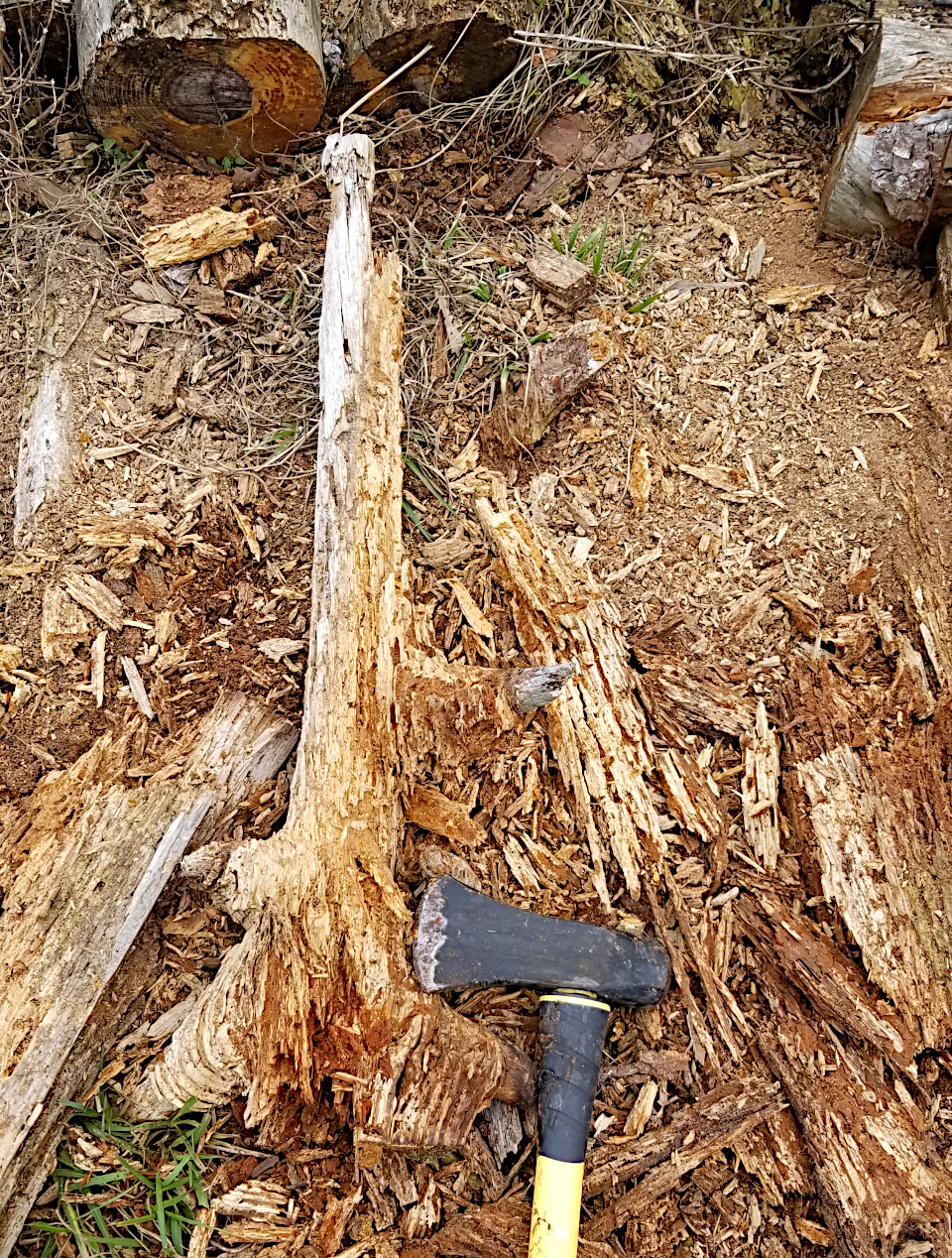
Truly, laziness actually is occasionally rewarded, if you are patient enough. Here’s a log where the outer rotted layers are already starting to fall off on their own, leaving that hard core that doesn’t rot for a long time: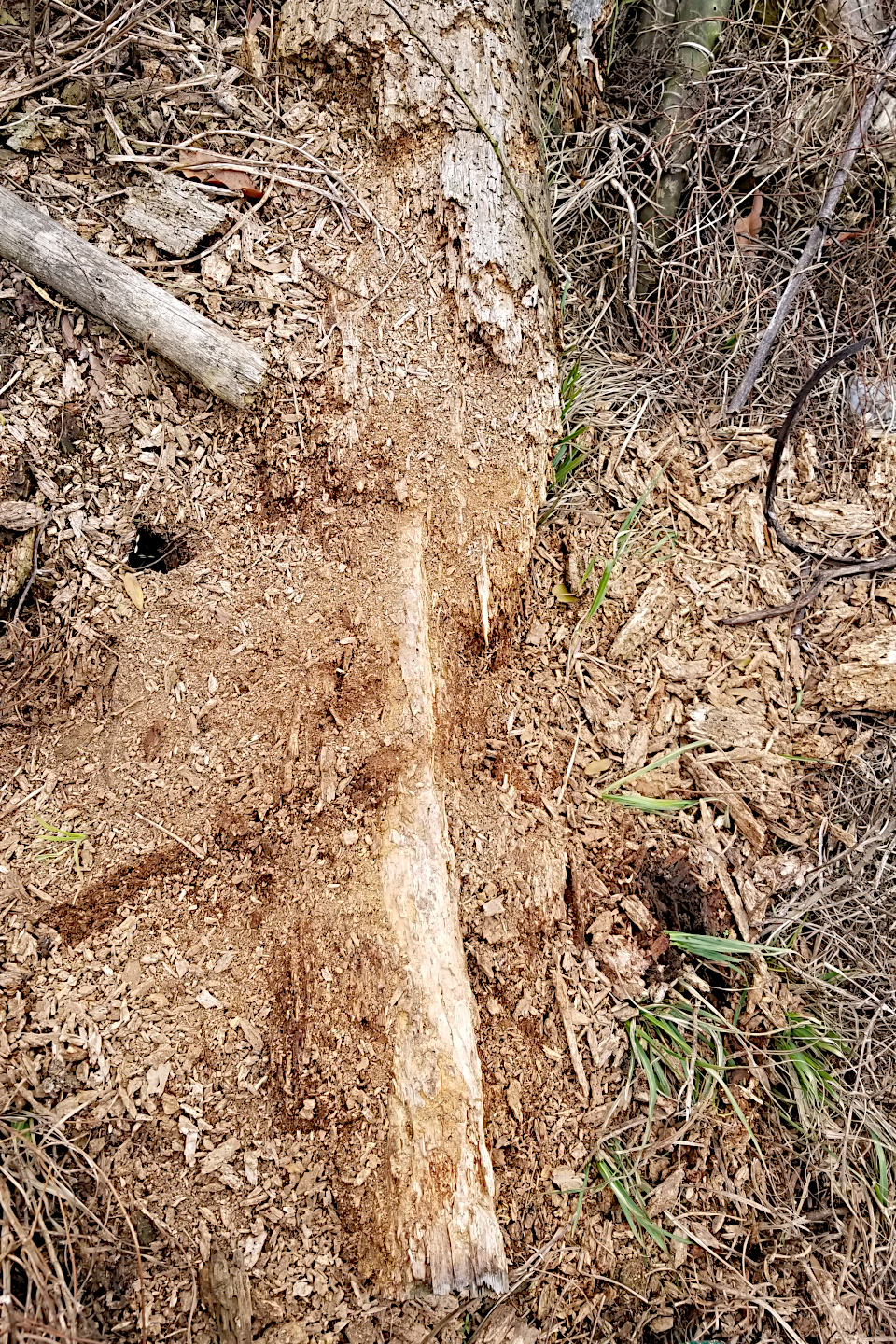
You could actually just grasp that hard core at the bottom and shake most of the rotted pine off, then maybe bang it against a rock to get the rest off. It’s that easy. And, by the way, all that mulch left over from demolishing the outer layers–perfect to lay around citrus trees and berry bushes, or even to use as the soil base for blueberries. Waste nothing. In general, if you are disposing of *any* tree or other plant material on your property, you are paying your municipal trash haulers to remove nutrition and value from your property. If it can’t be used for anything else, it can be composted. A pile of logs might take a few years to compost, but you get incredibly rich soil as a result.
But back to fatwood. In this picture you can see that the wood at the core is just soaked with resin: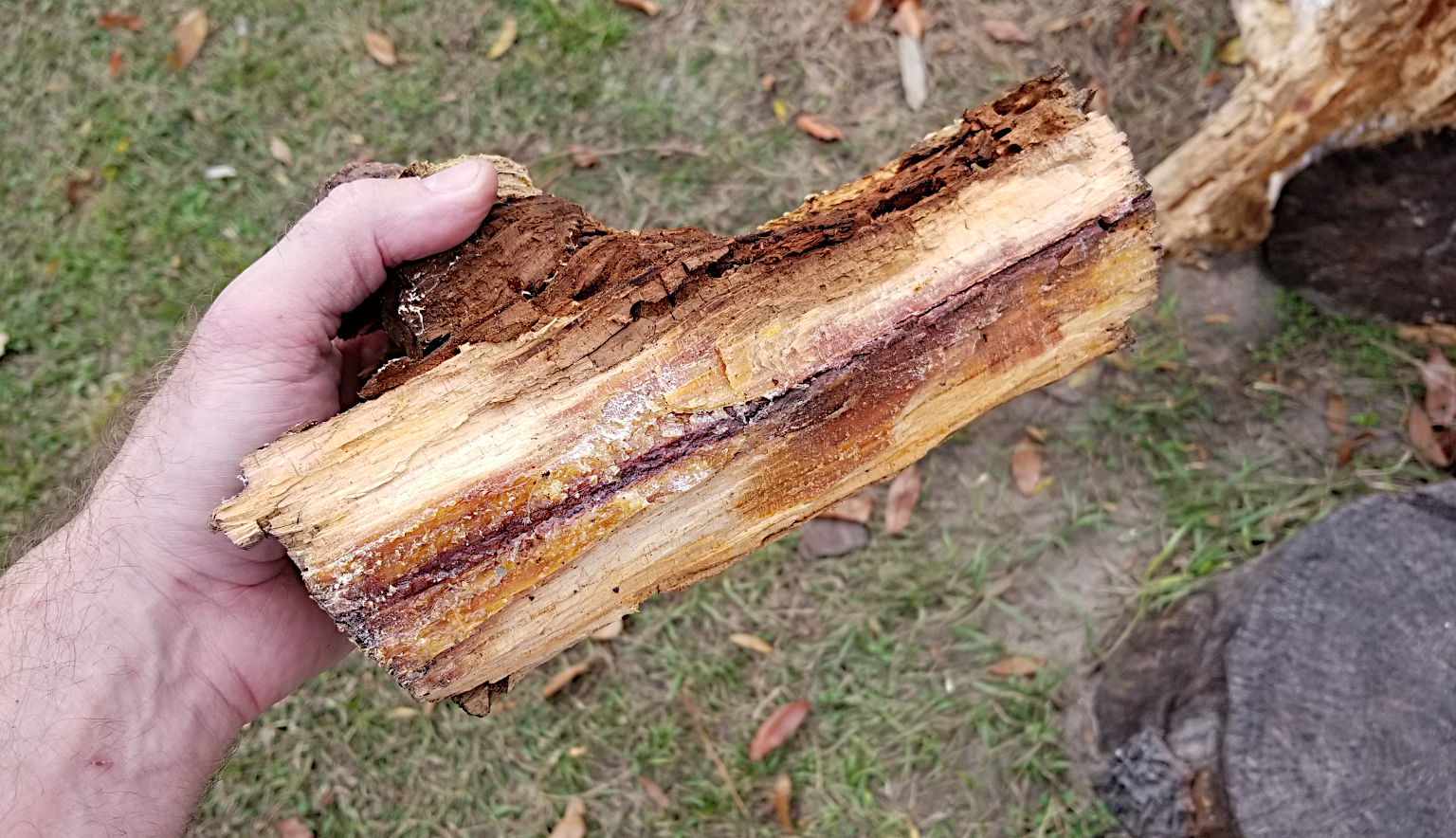
Fatwood is so imbued with resin that it doesn’t soak up water. Just think about the value of being able to store or carry tinder with you that is impervious to water, and doesn’t need any special container to protect it. Traditional American homes still value the stuff. In fact recently I saw LL Bean selling boxes of it for $50 apiece. You can find it for sale on many home or outdoor-oriented websites.
Now, a piece of fatwood the size of what I’m holding in my hand above is not likely to just burst into flame if you hold a match to it. At least not right away. But if you chip it into pieces about a quarter inch thick, it will indeed burst into flame almost instantly with the application of a single match, or even a few sparks from a good flint.
As one of my local friends, a classic Florida cracker tells it, he and his buddies used to enjoy campfires on their hunting trips, and would often grab a fallen pine long and put one end in the fire, gradually moving it into the fire as it burned, providing fire for hours. But “One time we found a 30-foot-long fatwood log and figured we would do the same. We ended up with a 30-long-foot fire going up into the night sky.”
So yes, very flammable and very durable for storage. Just don’t store it anywhere near sparks or open flames.
What else is it good for, besides lighting fires? Plenty. As noted on Infogalactic, with the right processing, this is where we get turpentine, pitch, pine tar, and some extremely useful resins. It has been a mainstay of many industries in America from the Colonial times onward. I even have it on good authority from my Florida cracker friend that one company makes gunpowder from it. Interesting fact to file away.
Now, we are of course reminded that trees are a renewable resource, but they they are not an immediate resource. I benefit from the fact that my wife and I live on a property once owned by her grandfather, who planted row after row of pine trees back in the 70s and 80s. Some of them are just now dying, and some have died over the past few years. Originally I bemoaned the fact that I couldn’t get to them in time to harvest them for lumber, but that blow has been quite softened by the discovery of fatwood.
If you are impatient, and you don’t have old pine logs laying about, you probably can find someone somewhere with that will let you haul them away for free. But also… think of your grandchildren, and plant some pine trees.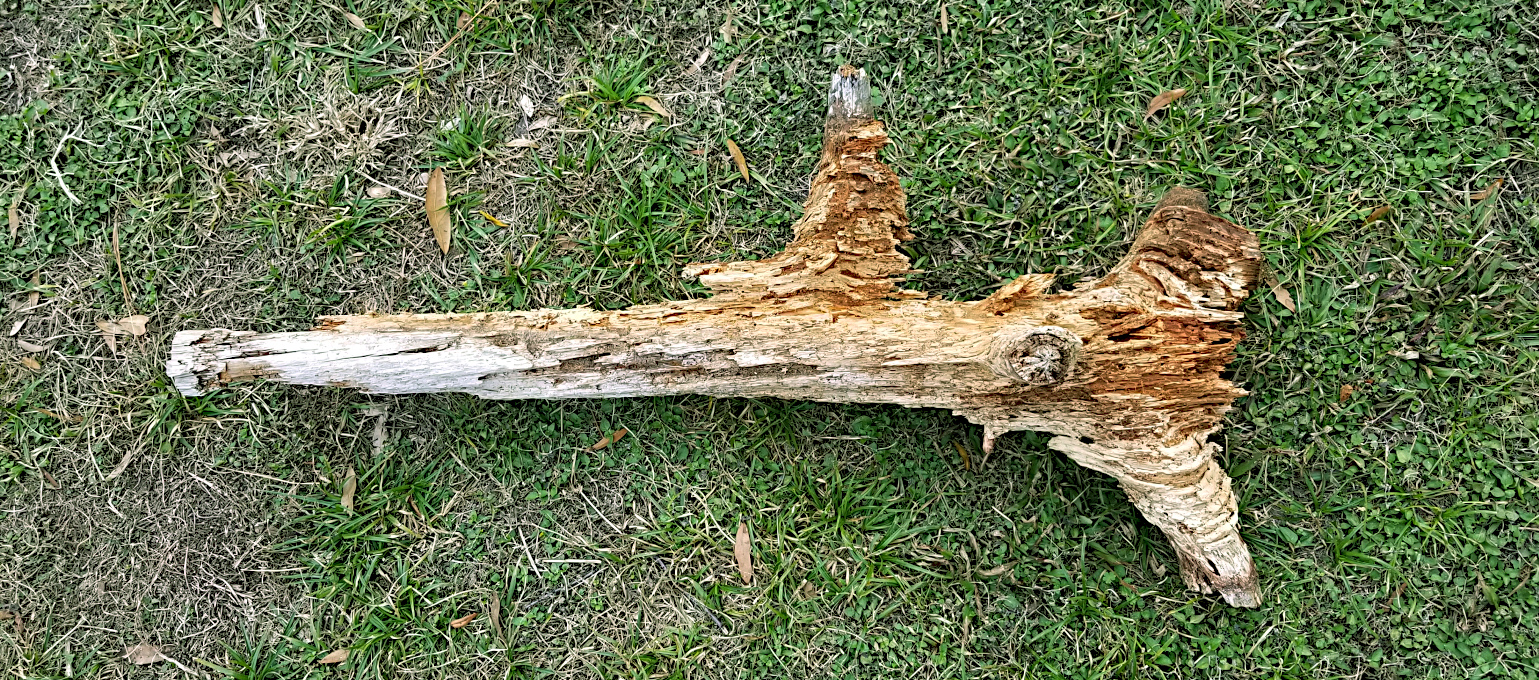

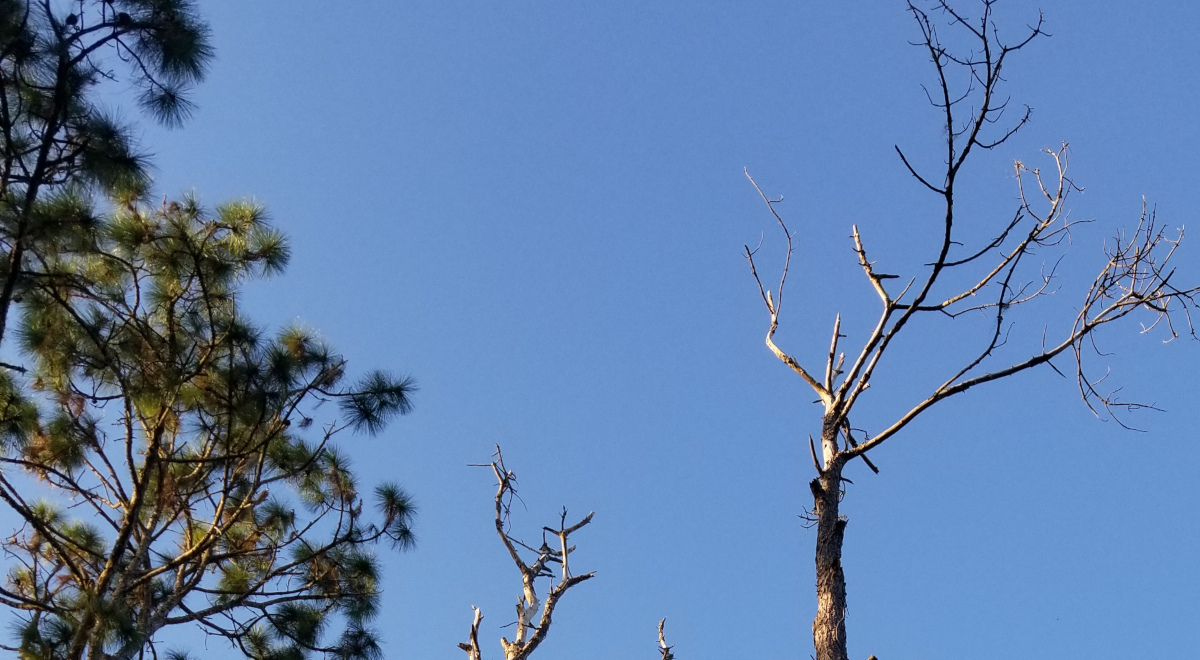








[…] we discussed last month, there is serious gold at the heart of old dead pine trees, especially the yellow pine scattered […]